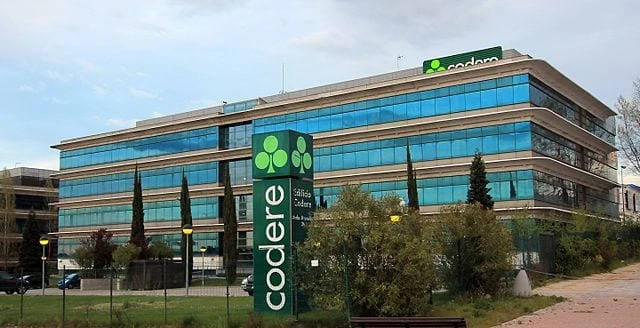Latin America currency woes continue to hurt Codere in Q3

Codere has announced a net loss of €21m (£18.3m/$23.6m) in the third quarter, with the sharp devaluation of Latin American currencies again proving costly during the period.
Operating revenue in the three months to the end of September amounted to €356.3m, down 11% from the corresponding period last year as a result of significant currency devaluations in one of its biggest markets, Argentina. On a constant currency basis, revenue would have come in at €434.4m – up 8% year-on-year.
Argentina remains Codere’s biggest market, despite revenue slipping 35% to €92.2m in the quarter (up around 16% at constant currency). This was blamed in part on the Euro appreciating 64% against the Peso during the quarter.
Revenue was also down 3.3% in Mexico – its second highest source of income – to €83.8m, while Codere saw revenue slip in Panama and Brazil. Only Colombia and Uruguay were able to achieve single-digit growth in Q3. Total Latin American revenue fell 19.5% to €220.9m.
However, Codere said its Latin American woes were partially offset by its performance in Spain, where revenue was up 19% year-on-year to €47m. Whiole Italian revenue declined marginally to €79.4m, total revenue from Europe was up 6.9% year-on-year at €135.4m.
The company also saw costs fall over the reporting period, down from €332.6m in Q3 2017 to €285.5m. Adjusted EBITDA for Q3 was up up 3.4% to €70.8m, but would have been up by 32% to €90.2m at constant currency.
Codere was also negatively impacted by currency exchange costs of €10.4m, as well as a €7.2m adjustement for inflation made to the tax it paid for the period. This ultimately saw the company post a €21m loss.
Operating revenue for the first nine months of the year decreased by 8% to €1.12bn, however in constant currency terms group revenues for the period would have grown by just over 10%.
Vicente Di Loreto, Codere’s CEO, said: “Despite the macroeconomic situation in Argentina that has continued to mark our results, our position is solid to cope and maintain the strategic guidelines of our business plan. In this period, we have achieved an increased adjusted EBITDA and margin expansion will allow us to further strengthen our competitive position in each market and our ability to generate positive results.”
The results will make for more grim reading for Codere, which in September saw a boardroom revolt when three of its directors refused to sign off on its H1 results.
Martínez Sampedro, his brother Luis Javier and Pío Cabanillas would not put their names to the company accounts. The Martínez Sampedros founded Codere and had been controlling shareholders until financial restructuring in 2014.
They retained their positions until January this year, when the main shareholder funds appointed Vicente di Loreto as the new CEO and Raúl Sorensen as non-executive chairman – replacing founder José Antonio Martínez Sampedroas.
Over the past 10 months, they have waged a battle to regain control of Codere, including an unsuccessful court challenge to their removal.
With a keen eye on its growing Spanish business, Codere is also part of a group seeking to put a stop to government plans to change national laws on advertising.
Last month, the government set out plans to introduce restrictions “similar to that of tobacco products”. In 2005, Spain introduced regulations that prohibit the sponsorship of tobacco products, as well as all kinds of advertising and promotion in the media, with a handful of exceptions.
Image: Luis García (Zaqarbal)
